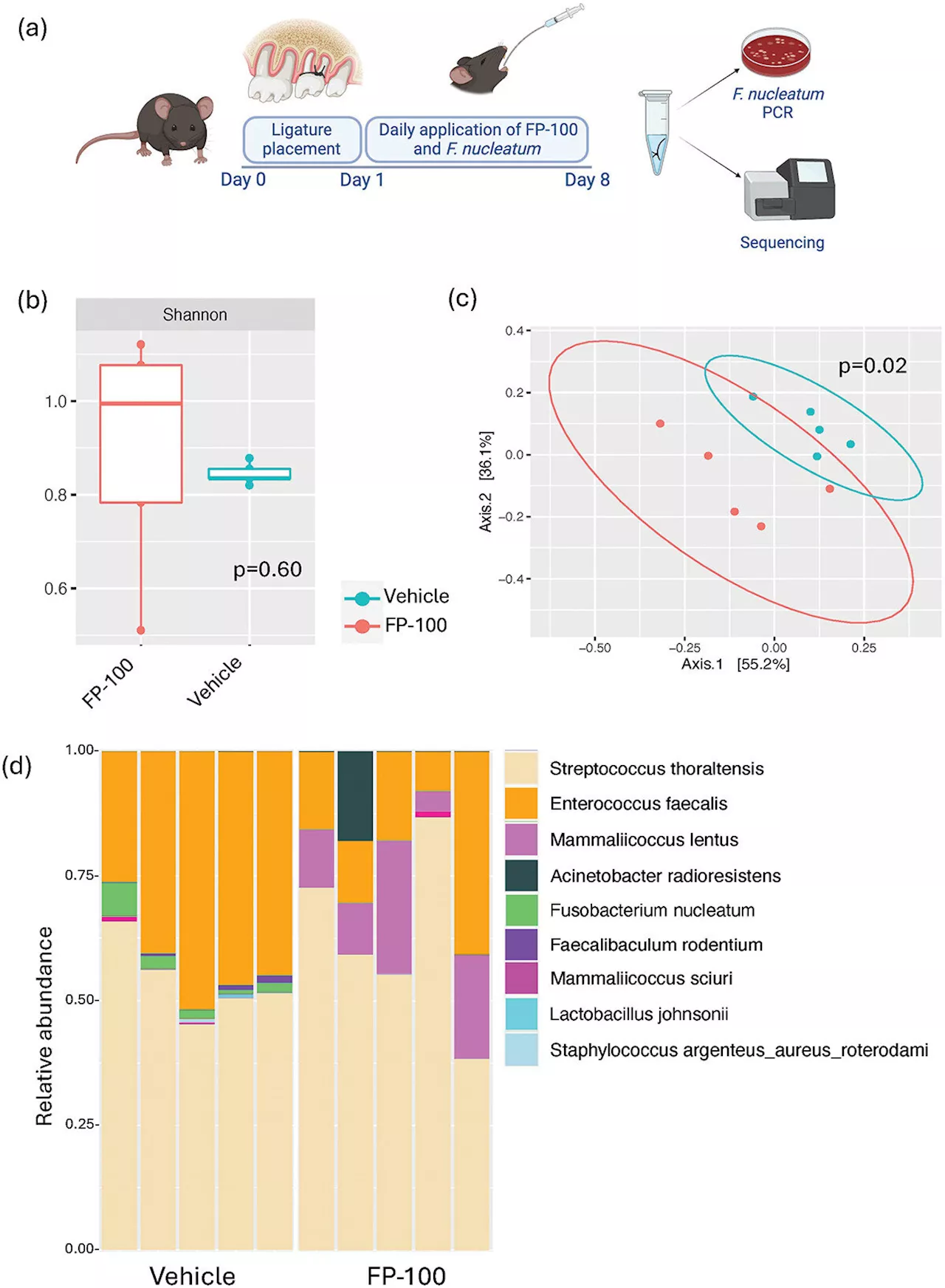Antibiotic-resistant bacterial infections often occur in patients with chronic inflammatory intestinal conditions, such as inflammatory bowel disease, and in patients who have taken antibiotics for a long time.
Broad Institute of MIT and HarvardSep 19 2024 Gram-negative bacteria such as Enterobacteriaceae are a common cause of these infections and have few treatment options. Fecal microbiota transplants have shown promise to curb some of these infections, but their composition varies between batches and they aren't always successful.
"Despite two decades of microbiome research, we are just beginning to understand how to define health-promoting features of the gut microbiome," said Marie-Madlen Pust, a computational postdoctoral researcher at Broad and co-first author on the paper. Kenya Honda of the Keio University School of Medicine is co-senior author of the study. Munehiro Furuichi, Takaaki Kawaguchi, and Keiko Yasuma-Mitobe, all researchers at Keio University, are co-first authors. In this work, the Honda lab used specialized culture techniques and animal models to analyze bacterial infections, while the Xavier lab developed software to analyze unknown microbial metabolites.
Xavier's team wanted to study samples from patients with and without gut inflammation. In partnership with the Broad's Metabolomics Platform, led by senior director and study co-author Clary Clish, they analyzed samples from pediatric patients with ulcerative colitis, looking for the presence of alternate gluconate pathway genes of gut microbes and fecal gluconate levels.
Bacteria Chronic E. Coli Genes Inflammation Inflammatory Bowel Disease Medicine Metabolites Microbiome Research Therapeutics Transplant Ulcerative Colitis
United Kingdom Latest News, United Kingdom Headlines
Similar News:You can also read news stories similar to this one that we have collected from other news sources.
 Giving an antibiotic to all children under 5 in Africa would save lives, researchers sayWhen UC San Francisco research showed that routinely treating children in Sub-Saharan Africa with a common antibiotic could reduce deaths in children under five, the World Health Organization (WHO) moved quickly to recommend the treatment—but only for infants between 1 and 11 months old.
Giving an antibiotic to all children under 5 in Africa would save lives, researchers sayWhen UC San Francisco research showed that routinely treating children in Sub-Saharan Africa with a common antibiotic could reduce deaths in children under five, the World Health Organization (WHO) moved quickly to recommend the treatment—but only for infants between 1 and 11 months old.
Read more »
 More than 39 million deaths from antibiotic-resistant infections estimated between now and 2050, suggests analysisMore than 39 million people around the world could die from antibiotic-resistant infections over the next 25 years, according to a study published in The Lancet.
More than 39 million deaths from antibiotic-resistant infections estimated between now and 2050, suggests analysisMore than 39 million people around the world could die from antibiotic-resistant infections over the next 25 years, according to a study published in The Lancet.
Read more »
 More than 39million will die of AMR in the next 25 years, scientists warnThe infectious threat of antibiotic resistance by Professor Dame Sally Davies
More than 39million will die of AMR in the next 25 years, scientists warnThe infectious threat of antibiotic resistance by Professor Dame Sally Davies
Read more »
 ECU research emphasizes proper evaluation for children with potential antibiotic allergiesResearch from Edith Cowan University (ECU) has highlighted the need for children with a suspected antibiotic allergy to be fully assessed by drug allergy services.
ECU research emphasizes proper evaluation for children with potential antibiotic allergiesResearch from Edith Cowan University (ECU) has highlighted the need for children with a suspected antibiotic allergy to be fully assessed by drug allergy services.
Read more »
 Antibiotic resistance threatens millions of lives worldwideMore than 39 million people around the world could die from antibiotic-resistant infections over the next 25 years, according to a study published in The Lancet.
Antibiotic resistance threatens millions of lives worldwideMore than 39 million people around the world could die from antibiotic-resistant infections over the next 25 years, according to a study published in The Lancet.
Read more »
 First narrow-spectrum antibiotic successfully eliminates Fusobacterium nucleatum, a gum disease pathogenIn a study published in the Journal of Oral Microbiology, ADA Forsyth scientists found that FP 100 (Hygromycin A), a first-in-class, small molecule, narrow-spectrum antibiotic, successfully eradicates Fusobacterium nucleatum without harming the oral or gut microbiomes.
First narrow-spectrum antibiotic successfully eliminates Fusobacterium nucleatum, a gum disease pathogenIn a study published in the Journal of Oral Microbiology, ADA Forsyth scientists found that FP 100 (Hygromycin A), a first-in-class, small molecule, narrow-spectrum antibiotic, successfully eradicates Fusobacterium nucleatum without harming the oral or gut microbiomes.
Read more »
